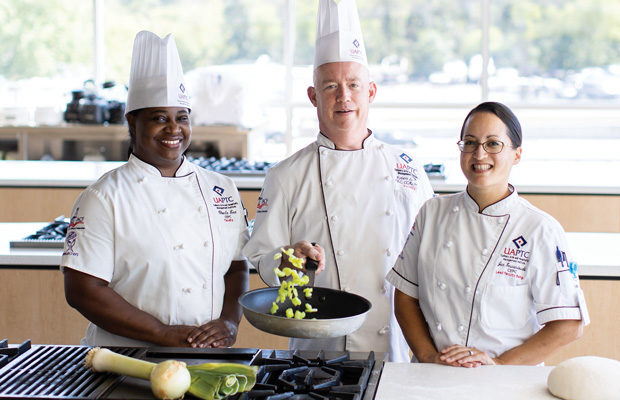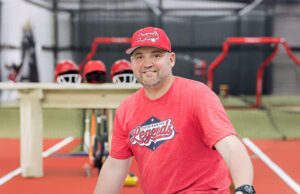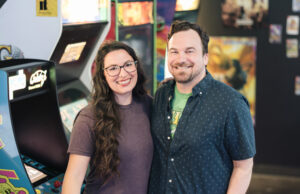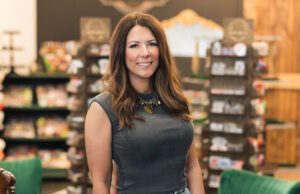A Matter of Taste

Guy Fieri, Giada De Laurenitis, Ina Garten and (former Arkansas Razorback) Eddie Jackson: These men and women are among many who’ve become household names based on both their incredible talents in the kitchen and the fact we see them almost nightly on The Food Network.
“One of the best things for the culinary industry was the appearance of cable food television, The Food Network, which began in the mid-1990s,” said Robert Hall, lead culinary instructor at the University of Arkansas Pulaski Tech. “That programming put an incredible spotlight on the food service industry and has only grown more popular.”
The food craze fueled by shows like “Chopped,” “Diners, Drive-In’s and Dives,” and “The Great British Baking Show” (not on The Food Network) has sparked an interest in aspiring Central Arkansas chefs and bakers, and the place many go to grasps the fundamentals of life inside a professional kitchen is the Culinary Arts and Hospitality Management (CAHMI) program at Pulaski Tech.
“Our school started as an apprenticeship program not connected to Pulaski Tech, back in the mid-1990s,” said Associate Dean Renee Smith. “It was later named the Arkansas Culinary School, then became part of Pulaski Tech in the fall of 2006 because the hospitality industry is the second largest employer in Arkansas.”
In 2013, students began coursework in the new Pulaski Tech Culinary Arts and Hospitality Management Institute. The program has continued growing annually, boasting an enrollment of more than 250 students today and a separate curriculum for students with learning differences, called the 3D Program.
“Whatever their backgrounds, whatever their interests, these students want to infuse that into their culinary careers,” said Hall. “A number of them want to own restaurants or work in large restaurants, on cruise ships or in hotels and resorts. Some even want to own food trucks.
“I also see a lot of the baking and pastry students, many aspiring to open their own bakeries, both large and small,” he added. “We really do see it all and try to give our students as much experience as possible in the two years they’re with us.”
CAHMI Program Director Jan Lewandowski says accommodating such a diverse group of students brings with it many welcomed and exciting challenges.
“We have students ranging from those just out of high school to older adults,” she said. “Many of our students are parents, work full-time or commuting from other cities. Trying to make our classes accessible is one of our main focuses.
“We know our students all have different goals, and it’s important that we help build those foundations so that, wherever they may choose to go, they’re starting on solid footing,” she added.
When discussing the foundations culinary students will be exposed to while at Pulaski Tech, Robert Hall insists nothing is left chance.
“The base rules are all still the same. It can begin with one of the first lessons on how to use a knife,” he said. “As our students move into more specialized classes, the pieces they learn evolve. In a class like Restaurant Industry, there is some finesse to learning how to properly prepare profit and loss statements for the business side of a smaller restaurant versus a larger restaurant.”
The past 18 months and the ongoing COVID-19 pandemic have certainly affected all students’ learning processes, especially in a field predicated so heavily on the sense of taste. But Hall, who is completing his doctorate through the University of Illinois at Urbana-Champaign, sees this moment as an opportunity to expand the way students learn.
“I’m working to find out if a culinary arts education can be as effectively delivered online, as it is in person,” he said. “Teaching the cooking techniques is uniform, so by using resources like Zoom for distance-learning, I’m exploring whether or not the educational experience can be as beneficial, if not identical to having a student present in the classroom.”
Prior to the pandemic, Renee Smith says Pulaski Tech touted some of the most enjoyable non-credit community courses for those simply wanting to become better in the kitchen. Think of it like auditing a class with a future Gordon Ramsey (sans swearing).
Lewandowski said, prior to COVID-19, one of the most popular community courses was sugar cookie baking. “(Baking sugar cookies) can seem like a daunting task for someone just learning to cook. It’s fun to watch them progress,” she said.
“The great thing about those community courses is, when the students arrive, all ingredients, pots, pans and utensils are ready and waiting,” said Lewandowski. “It takes so much of the guesswork out of (cooking) and makes the experience much more fun. The best part? Students don’t have to clean up when they’re done. We take care of that, too.”
Associate Dean Smith added that kids can get in on the act, too. “We offer a summer camp for kids between the ages of 10 and 16. They come for a week-long camp, learning about proper culinary techniques, baking and decorating.”
You can learn more about the University of Arkansas Pulaski Tech’s Culinary Arts and Hospitality Management by going to https://uaptc.edu/culinary









0 comments